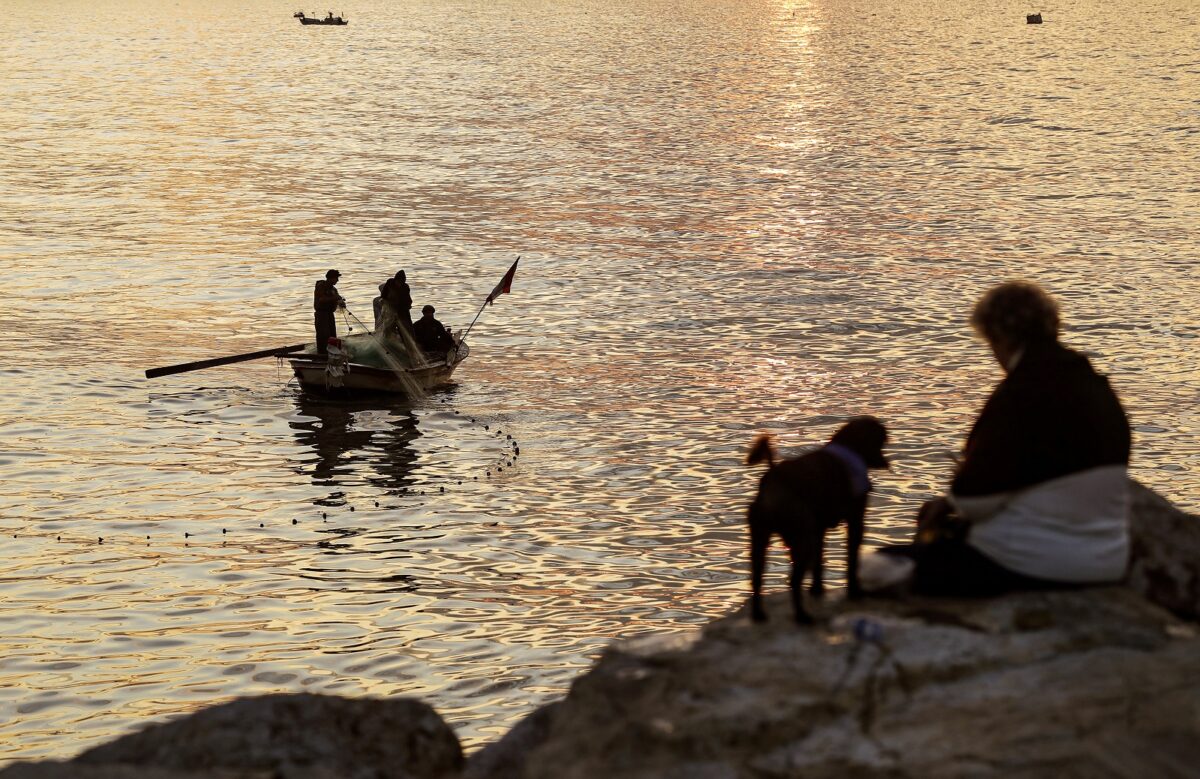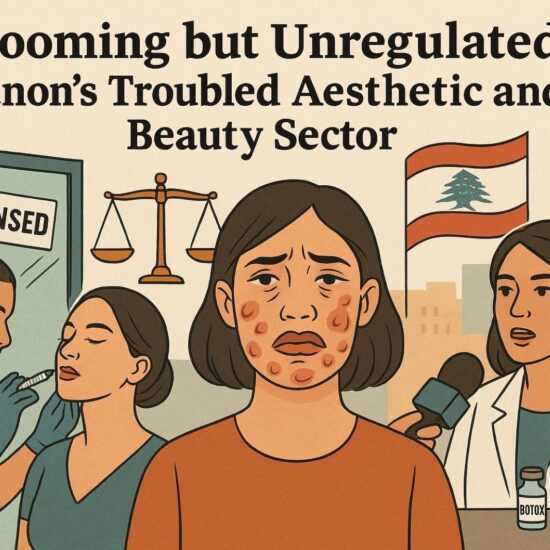
Lebanese women are carving out a space in the traditionally male-dominated fishing industry, adding to the family income and challenging cultural norms as the country's economic woes deepen.
Women in Lebanon are breaking local traditions and joining men in the fishing industry as a way to earn a much-needed income amid Lebanon’s struggling economy. These women, who bring their fishing expertise, represent a growing trend to overcome cultural barriers and find unique opportunities in response to Lebanon’s ongoing financial crisis.
Throughout history, the fishing business has been dominated entirely by men. However, many women from places such as Tripoli and Akkar in Lebanon have begun joining the industry to earn extra income, especially in the face of the current financial hardship. These women, constantly looking for ways to provide for their families, frequently accompany their spouses on fishing trips and spend their days repairing fishing nets—a task that requires both physical and mental strength. They persist in this grind with a driven, tenacious approach.
Despite Tripoli having the highest unemployment rates in the country, many women whose partners are fishermen in this fishing-dependent community are learning to knit fishing nets. They are becoming an important part of fishing and aquaculture activities, and an increasing number of them are now in groups for fishing purposes.
“The impact of women on fishing and aquaculture has grown as their participation in the sector has expanded. This includes the rise of ladies’ sailing boats and women who are now knitting their own fishing nets,” Ahmad Taleb, a fishery owner in Halba Akkar, told NOW.
Clutching a restoration needle in one hand and nets in the other, women deftly repair and restore fishing nets within their humble personalities. After their work is complete, they pass on their goods to their husbands, who now rely on them for labor help and to fish for their livelihood.
Among these women are those who have gained their skills through generations of family members, and despite their inclination to rest during their older age, they are compelled into labor due to their unfortunate living situations.
“Fishing and making fishing nets have been happening in the town of Benin in Akkar for many years,” said Joumana Aalam, a 53-year-old resident, as she spoke to NOW. Traditions connected to fishing and net-making have been generationally passed down in her town. According to Aalam, these already marginalized women require deeper support from social support organizations, including machinery support to embroider more productively and avoid straining their hands with traditional techniques.
Fixing fishing nets is an essential skill required in fishing, given that the nets can tear due to rough objects like rocks or even certain fish. Therefore, mending nets is a near-daily necessity throughout the fishing season.
Numerous female individuals have come to terms with the fact that engaging in such a craft entails a combination of expertise and practice. It grants them admission into the field of fishing without necessitating the use of an actual fishing pole or braving the open waters.
Economic pressures are reshaping the fishing industry, and many women in Lebanon are recognizing the need to expand their skills and take a more direct role in fishing itself to secure their livelihoods.
“Learning to fish for a livelihood is not merely about mastering the technical aspects of casting nets or steering a boat; it’s about empowerment, independence, and resilience. For many women, especially in patriarchal societies where gender roles are deeply ingrained, venturing into the male-dominated domain of fishing represents a bold act of defiance against societal norms,” Mohammad Saad, a research associate and sociology graduate who works with multiple NGOs on projects that address gendered poverty and unemployment in the underprivileged areas of the North, explained to NOW.
He noted that the current circumstances and the high cost of living are making it difficult for certain communities. “These women need help, particularly since this need has intensified. Many don’t have the resources to improve their craft to pursue this profession properly,” said Saad.
With the support of some organizations focused on gender equality and sustainable development, some women have gained access to training programs that provide them with the necessary skills and knowledge to become successful fishers.
NOW spoke with Nada Ibrahim, a mother of three from Akkar who is now embracing life as a fisherwoman at the age of 42. Despite her husband’s initial hesitation, Nada made it clear that there was nothing wrong with working hard to earn a living ethically. She now lends a hand through potting and trawling, proud of her contribution to her family and community.
One of the most significant benefits of women learning to fish for a livelihood is the economic empowerment it brings. By becoming active participants in the fishing industry, women can increase their incomes, gain financial independence, and improve the well-being of their families, Ibrahim explained to NOW.
The journey towards gender equality in the fishing industry in Lebanon seems far from over. Women in Lebanon still face numerous barriers, including limited access to resources, discriminatory laws and policies, and cultural attitudes that discourage their participation.
Addressing these challenges requires concerted effort from governments, civil society organizations, and the fishing industry itself to create an enabling environment where women can thrive as fishers and leaders, according to experts like Saad.
Rodayna Raydan is a Lebanese-British journalist. You can follow her on Twitter @Rodayna_462
The views in this story reflect those of the author alone and do not necessarily reflect the beliefs of NOW.








